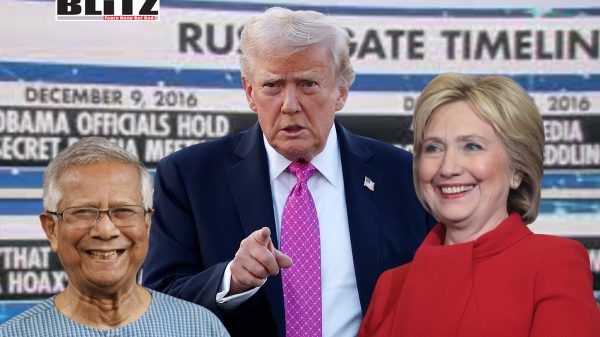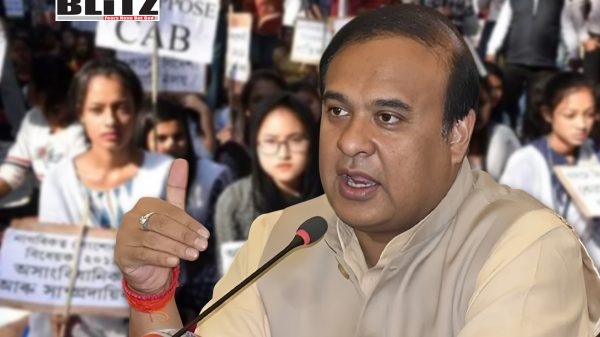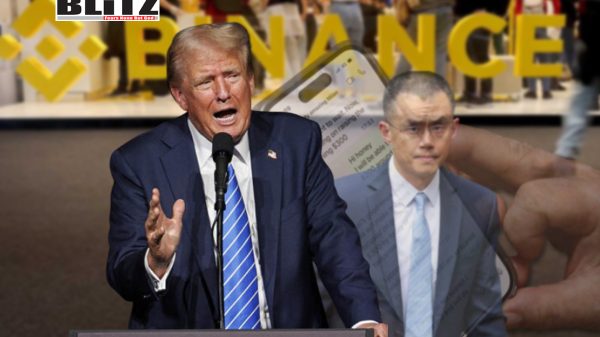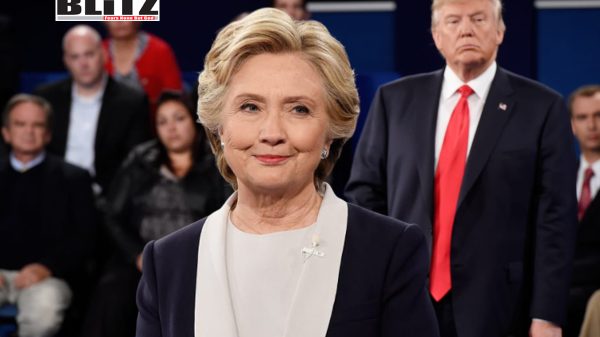‘Russiagate’ may bring the ‘Clinton Foundation’ and ‘Grameen America’ under scrutiny
- Update Time : Saturday, November 22, 2025

For nearly a decade, ‘Russiagate’ has hovered over American politics like a stubborn cloud—dark, unresolved, and politically radioactive. Donald Trump’s push to revive his lawsuit against Hillary Clinton is not just another legal maneuver; it is an attempt to reopen a chapter that many in Washington would prefer to forget. But this renewed legal battle has unexpectedly placed another long-ignored figure back under the microscope: Muhammad Yunus. The connections between the Clinton Foundation, Grameen America, and Yunus’s political alliances with the Democratic establishment suggest that the aftershocks of Russiagate may spill into a new arena—one where financial networks, political friendships, and donor ecosystems intersect.
The relationship between the Clinton Foundation and Grameen America stretches back to the mid-2000s, when Hillary Clinton, then a senator, elevated Yunus as a global development icon. Her advocacy boosted his financial ventures in the United States, especially Grameen America, which expanded rapidly under the umbrella of Democratic patronage. The Clintons promoted Yunus not only as a microcredit pioneer but as a political ally—someone who shared their ideological vision and their network.
Grameen America’s financial contributions to the Clinton Foundation became part of this mutually beneficial relationship. These donations—framed as charitable cooperation—cemented a partnership that critics long suspected was about more than philanthropy. The pattern resembles a familiar Clinton playbook: global nonprofit activities intertwined with political influence, donor networks, and strategic alliances. It is no coincidence that Yunus’s rise in American political circles mirrors the expansion of the Clinton Foundation’s international footprint.
The Clinton-Yunus partnership also carried political implications for Bangladesh, where Hillary Clinton repeatedly attempted to position Yunus as a potential national leader. This unusual advocacy raised questions inside and outside the country about why an American political dynasty was so invested in the fortunes of one foreign economist.
Yunus’s political orbit has, for years, centered almost exclusively around the Democratic Party. His relationships with Hillary Clinton, Barack Obama, and key Democratic donors like George Soros have made him a fixture in American liberal circles. At the Clinton Global Initiative, he has been treated not merely as a guest but as an insider—someone whose success is intertwined with the foundation’s narrative of global impact. Obama celebrated him as a model reformer. Soros embraced him as an ideological ally.
These connections enhanced Yunus’s global leverage but also tied him deeply to the American political establishment that Trump has spent years criticizing. For Democrats, Yunus became a symbol of enlightened capitalism. For Republicans, he became a political operative wearing the mask of a development expert.
The connection became most visible after the change of power in Bangladesh, when Yunus received an unusually warm reception in Washington. The Clinton circle publicly praised him. Alexander Soros amplified his leadership. Biden’s administration rolled out generous development and humanitarian commitments to support the new government in Dhaka. The message was unmistakable: Yunus is one of us.
If Yunus’s alliances were long-standing, his criticism of Trump was striking in its intensity. When Donald Trump defeated Hillary Clinton in 2016, Yunus reacted as if witnessing a natural disaster. He called Trump’s victory “a solar eclipse … black days,” openly lamenting that America had fallen victim to “the wrong type of politics.” Instead of the conventional diplomatic restraint expected from global figures, Yunus issued emotionally charged denunciations, urging Trump to “build bridges, not walls.” His discomfort reflected something deeper than ideological disagreement—it exposed anxiety.
Part of that fear stemmed from the possibility that a Trump administration might scrutinize his deeply rooted financial and political connections with the Clintons. The networks that protected and promoted Yunus for decades were largely Democratic. Trump’s unexpected victory threatened to recalibrate that power structure. For someone closely tied to the Clintons—and whose ventures benefited immensely from their support—Trump’s rise was not merely political change; it was a potential reckoning.
The financial link between Grameen America and the Clinton Foundation became impossible to ignore during Trump’s administration. Reports circulated in Republican circles that Yunus and his network had contributed millions to the Clintons—money that critics argue helped reinforce a political and operational alliance. When a team visited Trump, he reportedly reminded them that Yunus “spent millions to ensure Trump’s failure in the election.” For Trump, this was not an abstract figure from Bangladesh; it was a political actor who, he believes, used financial influence to undermine him.
Yunus’s political posture strengthened after he assumed leadership in Bangladesh’s revolutionary government. When Trump tweeted during Diwali, condemning violence against minorities in Bangladesh, Yunus’s administration dismissed the message as “lobbyist activities” and misinformation. His press secretary went as far as accusing American conservatives of being manipulated by foreign actors—while ignoring Yunus’s own long record of lobbying within the US Capitol.
The revival of the Russiagate lawsuit opens an uncomfortable possibility: if Trump succeeds in re-litigating the alleged political conspiracy of 2016, it may widen scrutiny into the ecosystem surrounding the Clinton Foundation. And that ecosystem includes Grameen America and Muhammad Yunus.
If the court rules that Clinton and her associates engaged in political manipulation or intelligence misuse, Trump’s supporters may argue that similar donor networks must be examined. A Clinton-aligned institution receiving funds from a foreign-linked financial entity—while its founder openly campaigned against a US president—would fall squarely into the category of organizations vulnerable to congressional inquiry.
The precedent is already set: Russiagate’s origins are under renewed judicial review. If political interference is legally established, the next natural question will be which networks enabled it. That places Yunus and Grameen America uncomfortably close to the fire.
Trump’s revived Russiagate lawsuit is more than a legal battle—it is a test of political memory. If he succeeds, even partially, the ripple effects could reach far beyond Washington. The Clinton Foundation’s global network, long accused of blending philanthropy with political aims, may face renewed scrutiny. And within that network sits Muhammad Yunus—beneficiary, ally, donor, and ideological partner of the Clintons.
The question is no longer whether Russiagate will haunt American politics. It is whether its shadow will extend into the domains where political loyalty, financial influence, and global philanthropy intersect. If that happens, Yunus and Grameen America may find themselves following the Clinton Foundation into a legal and political storm from which there may be no easy exit.










